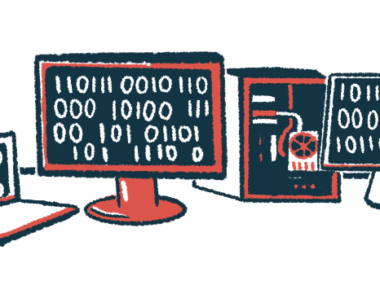$132.5M raised to advance ENV-101’s clinical development for IPF
Phase 2a study shows therapy reduced scarring, improved lung function
Written by |

Endeavor BioMedicines has raised $132.5 million toward the clinical development of its pipeline programs, including ENV-101, an investigational oral treatment for idiopathic pulmonary fibrosis (IPF).
Results from a recent Phase 2a trial (NCT04968574) showed ENV-101 was generally well tolerated, reduced tissue scarring, or fibrosis, and improved lung function in IPF patients within 12 weeks, or about three months.
Based on this, the company will test the therapy this year in a Phase 2b trial that will enroll people with IPF and progressive pulmonary fibrosis.
“Endeavor BioMedicines has the momentum, coupled with the right team and the necessary financing, to advance our mission of delivering transformational medicines to patients who need them,” John Hood, PhD, Endeavor’s co-founder, CEO, and chairman, said in a company press release.
In pulmonary fibrosis (PF) scar tissue accumulates in the lungs, impairing lung function and leading to symptoms like shortness of breath and a dry cough that worsen with time. In IPF, fibrosis is driven by the excessive activity of myofibroblasts, which is regulated by a signaling cascade known as the Hedgehog pathway.
ENV-101 blocks the Hedgehog pathway, which should hamper and possibly reverse lung fibrosis, while improving lung function.
Results of ENV-101 in Phase 2a trial
The recent Phase 2a trial evaluated ENV-101’s safety and effectiveness in 41 adults, ages 40 and older, with mild to moderate IPF. The patients were randomly assigned to receive either 200 mg of ENV-101, or a placebo, once daily for 12 weeks.
ENV-101 wasn’t associated with serious or severe side effects, with the most commonly reported ones being mild to moderate and including a distorted sense of taste, hair loss, and muscle cramps, trial results indicated.
Forced vital capacity, which is a measure of lung function that indicates the amount of air a person can forcibly exhale after a deep breath, increased in ENV-101-treated patients at six and 12 weeks, but decreased in those taking a placebo.
ENV-101 also increased patients’ total lung capacity, that is, the volume of air in the lungs after a deep breath, over 12 weeks compared with a placebo. A significant decrease in lung fibrosis was also seen in those taking ENV-101. Detailed trial data will be presented at the American Thoracic Society (ATS) International Conference, May 17-22, in San Diego.
The announced funding was the result of a series C financing round led by AyurMaya with several existing and new investors participating, including Invus, SymBiosis, Omega Funds, and Silver Arch Bio.
“We appreciate the support from this group of leading life sciences investors, who recognize the tremendous progress we’ve made since our initial funding rounds as well as the life-changing potential of our therapeutic candidates to reverse the trajectory of relentless diseases,” Hood said.







